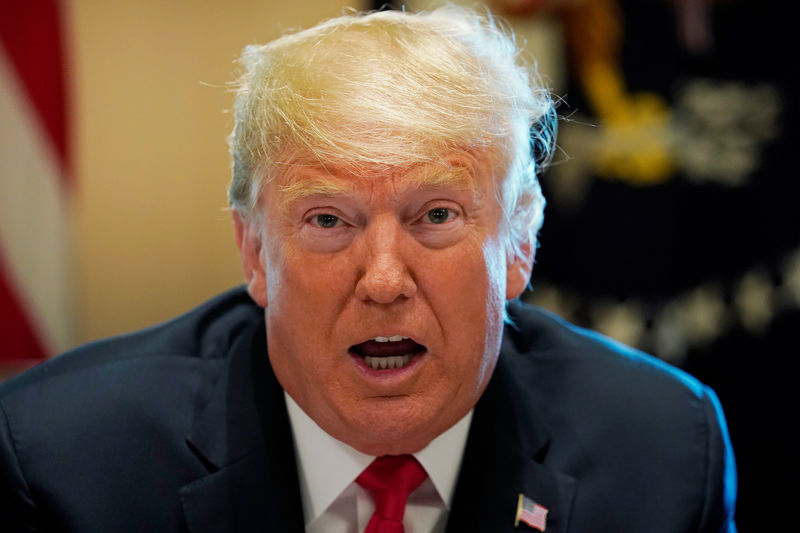By Humeyra Pamuk
WASHINGTON (Reuters) - A Trump administration proposal to tighten eligibility for food stamps could undercut access to basic nutrition for millions of Americans and hurt some low-cost retailers, according to an analysis conducted by the U.S. Department of Agriculture (USDA), which runs the program.
The study clashes with the administration's defense of the proposed rule change, unveiled on Tuesday, which it said would end widespread abuse of the Supplemental Nutrition Assistance Program (SNAP) by Americans with sufficient resources.
"The proposed rule may also negatively impact food security and reduce the savings rates among those individuals who do not meet the income and resource eligibility requirements for SNAP," the Agriculture Department said in the text of the rule published in the federal registry.
The USDA research also said retailers would see a drop in their sales as a result of the proposed change. "All retailers would likely see a drop in the amount of SNAP benefits redeemed at stores if these provisions were finalized," it said.
On Tuesday, Agriculture Secretary Sonny Perdue defended the rule change that would cut an estimated 3.1 million Americans from food stamp eligibility. He said the administration was "closing a loophole" that allowed exploitation of the program by Americans that had substantial savings and assets.
He also said the move would not affect food sales: "The people that are affected by this have resources other than that...I don't think that's a decrease in food expenditures at all," he said.
Advocacy groups and Democrats have bashed the proposal. Speaker of the U.S. House of Representatives, Nancy Pelosi, called it "cruel," and said it would "steal food off the table of working families and hungry children."
The SNAP program provides free food to some 40 million Americans, or about 12 percent of the total U.S. population.
Currently, 43 U.S. states allow residents to qualify for food stamps automatically through SNAP if they receive benefits from another federal program known as Temporary Assistance for Needy Families, or TANF, according to the USDA.
The Agriculture Department wants to change that by requiring people who receive TANF benefits to pass a separate review of their income and assets to determine whether they are also eligible for free food from SNAP, officials said.
If enacted, the rule would save the federal government about $2.5 billion a year, according to the USDA.
The administration's latest push comes after efforts last year to pass new restrictions on SNAP were blocked by Congress.
